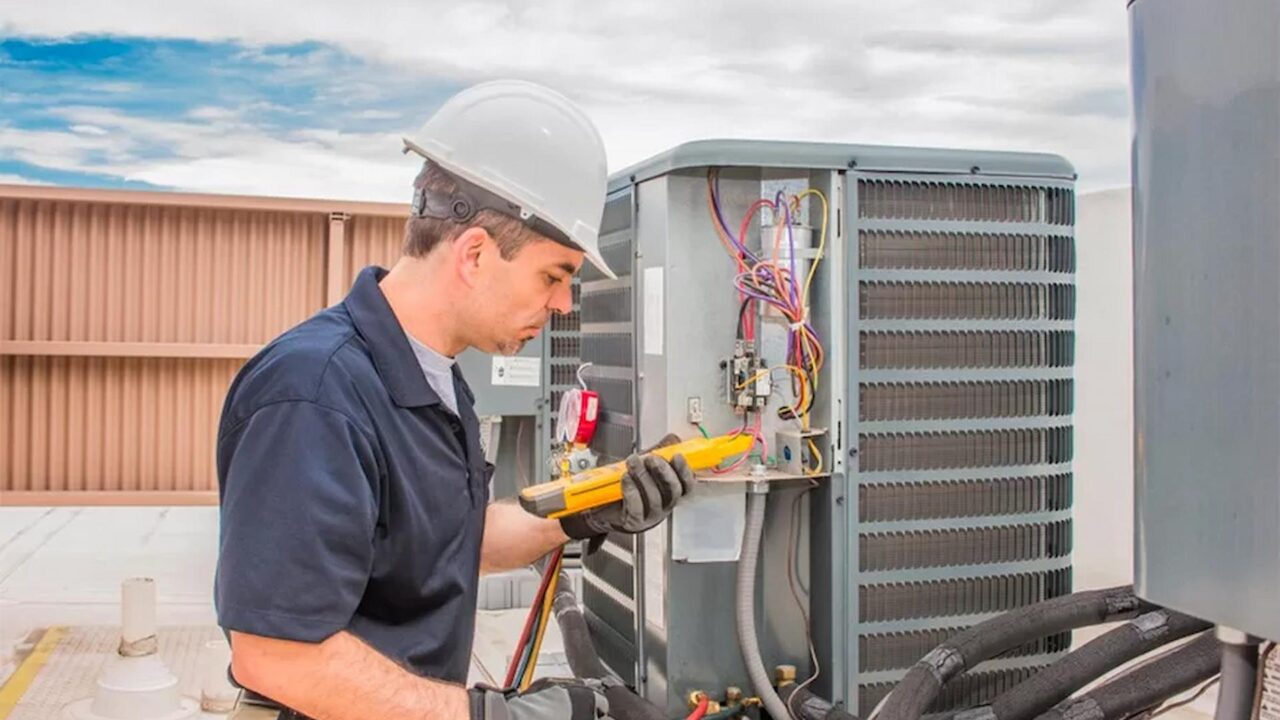Is your HVAC system acting up—blowing warm air, making strange noises, or just not turning on? Don’t sweat it. This practical guide walks you through simple steps to diagnose common HVAC problems at home. From thermostat issues to clogged filters, learn what to check before calling a pro. And if you’re in South Florida, discover why HVAC Diagnosis Boca Raton is your go-to solution for fast, reliable service. Stay cool and in control—start troubleshooting today!
If your HVAC system suddenly stops working, you’re not alone. Many homeowners face heating or cooling problems at some point. But don’t panic—this guide will walk you through how to diagnose common HVAC issues quickly and safely.
Whether it’s a strange noise, weak airflow, or a system that won’t turn on at all, knowing the basics of HVAC diagnosis can save you time, money, and stress.
Why HVAC Diagnosis Matters
Your HVAC system is a vital part of your home comfort. It heats in winter, cools in summer, and ensures good air quality year-round. When it fails, things can get uncomfortable—and expensive—fast.
Performing a basic diagnosis can help:
- Prevent small problems from turning into costly repairs
- Extend the life of your HVAC system
- Save you money on unnecessary service calls
- Provide helpful info to technicians
And if you’re based in South Florida, you’ve probably heard of the trusted service: HVAC Diagnosis Boca Raton. Local professionals know the area’s unique climate and system requirements better than anyone.
Common Signs Your HVAC System Isn’t Working Right
Before diving into diagnosis, it’s important to recognize the red flags. These are the most common symptoms that something’s off:
- Warm air coming from vents in cooling mode
- No air blowing at all
- High humidity indoors
- Unusual smells (burning, musty, or chemical)
- Loud or strange noises (rattling, buzzing, hissing)
- Frequent cycling on and off
- Thermostat not responding
If you notice any of these, it’s time to troubleshoot.
Step-by-Step HVAC Diagnosis
1. Check the Thermostat
Start simple. Make sure your thermostat is:
- Set to the correct mode (heat or cool)
- Set at the right temperature
- Powered (check for a blank screen or low battery)
Sometimes, dead batteries or faulty wiring can make it seem like the HVAC system is broken, when really it’s just the thermostat.
2. Inspect Your Air Filter
A clogged or dirty air filter can restrict airflow and cause all sorts of issues:
- Poor heating or cooling
- Frozen evaporator coils
- Overheating
- Higher energy bills
Pull out the filter and hold it up to the light. If you can’t see through it, it’s time for a replacement.
3. Look at the Circuit Breaker
HVAC systems require a lot of power. A tripped circuit breaker can shut down your furnace or AC. Go to your electrical panel and check for any flipped switches.
Reset the breaker and try turning the system back on. If it trips again, there may be an underlying electrical issue—call a pro immediately.
4. Inspect the Outdoor Unit
If your AC isn’t cooling, head outside. Look for:
- Debris blocking the unit (leaves, sticks, grass)
- Ice buildup on refrigerant lines
- Loud noises or vibration
- Fan not spinning
Clear any blockages, and gently clean the coils if they’re dirty. Still not working? You might be low on refrigerant or have a compressor issue.
5. Check Air Vents and Registers
Sometimes the issue isn’t with the HVAC unit, but with the airflow:
- Make sure vents are open and unblocked
- Feel for warm or cool air coming through
- Listen for whistling (a sign of airflow restriction)
If airflow is weak throughout the house, it could be a blower issue or duct blockage.
6. Evaluate Humidity and Odors
A properly functioning HVAC system helps control humidity. If your home feels muggy or damp:
- Check for refrigerant leaks
- Inspect the condensate drain
- Clean or replace filters
Foul odors? Musty smells point to mold in the ducts or evaporator coil, while chemical or burning smells might signal an electrical issue.
Advanced Problems That Need a Pro
If you’ve checked all the basics and still have issues, it’s time to bring in an expert. Advanced HVAC problems include:
- Refrigerant leaks
- Faulty compressors or motors
- Electrical wiring issues
- Blown capacitors
- Broken thermostats
- Damaged blower fans
This is where services like HVAC Diagnosis Boca Raton come in handy. A trained technician can quickly identify and fix complex problems you can’t safely DIY.
HVAC Diagnosis Tools You Can Use
Some homeowners prefer a hands-on approach. If that’s you, consider investing in these tools:
- Multimeter: To test thermostat wiring and voltage
- Infrared thermometer: To measure vent temperatures
- Manifold gauge: To check refrigerant levels (for pros only)
- Smart thermostat: Offers system alerts and diagnostics
Just remember, working with high-voltage systems or refrigerants without training is dangerous. Always know your limits.
How to Prevent HVAC Issues Before They Start
Prevention is better than repair. Follow these tips to keep your HVAC system running smoothly:
- Change filters every 1-3 months
- Schedule annual professional maintenance
- Keep vents clear and ducts clean
- Clean outdoor units regularly
- Use a programmable thermostat
Seasonal checkups with services like HVAC Diagnosis Boca Raton can help spot problems early and keep your system in top shape.
When to Call an HVAC Technician
If your system still doesn’t work after basic checks, or if you hear or smell anything unusual, stop troubleshooting and call a call a technician. Delaying repairs can lead to:
- System breakdowns
- Higher energy bills
- Safety hazards like fire or refrigerant leaks
- Shortened system lifespan
A local expert will diagnose and fix the issue safely and efficiently.
Choosing the Right HVAC Diagnosis in Boca Raton
When searching for a technician in South Florida, look for:
- Licensed and insured professionals
- Transparent pricing
- Good reviews and testimonials
- Emergency services
- Preventive maintenance plans
HVAC Diagnosis Boca Raton offers all these features, making it a reliable choice for both diagnosis and long-term care of your system.
Final Thoughts
When your HVAC system isn’t working right, it can be frustrating. But with a bit of knowledge and a few simple checks, you can often identify the problem—and even fix it yourself.
From thermostat glitches to airflow issues, knowing how to perform a basic HVAC diagnosis saves time, money, and stress. And when things get tricky, expert help is just a call away.
So whether you’re a hands-on homeowner or prefer to leave it to the pros, keep this guide handy. And if you’re in South Florida, don’t forget: HVAC Diagnosis Boca Raton has your back.





